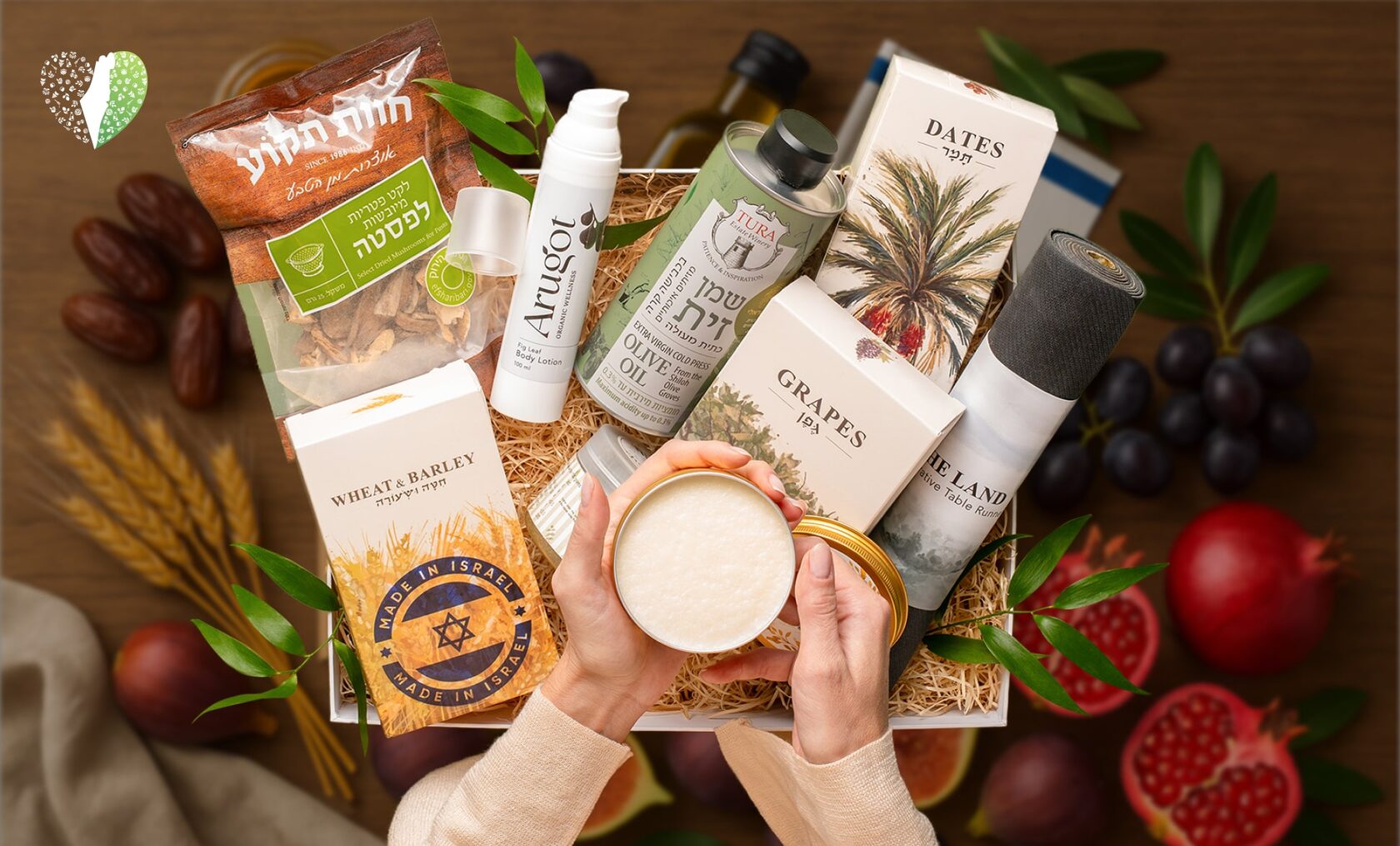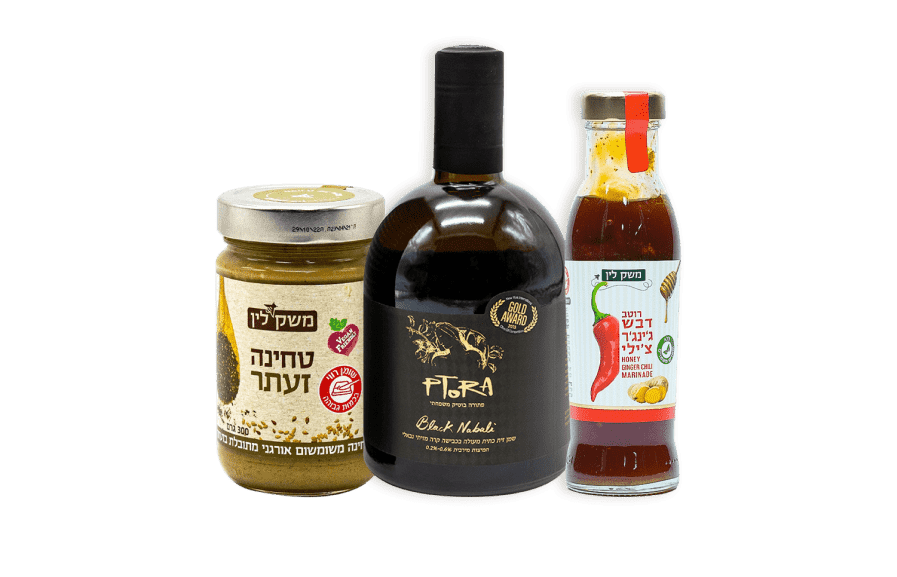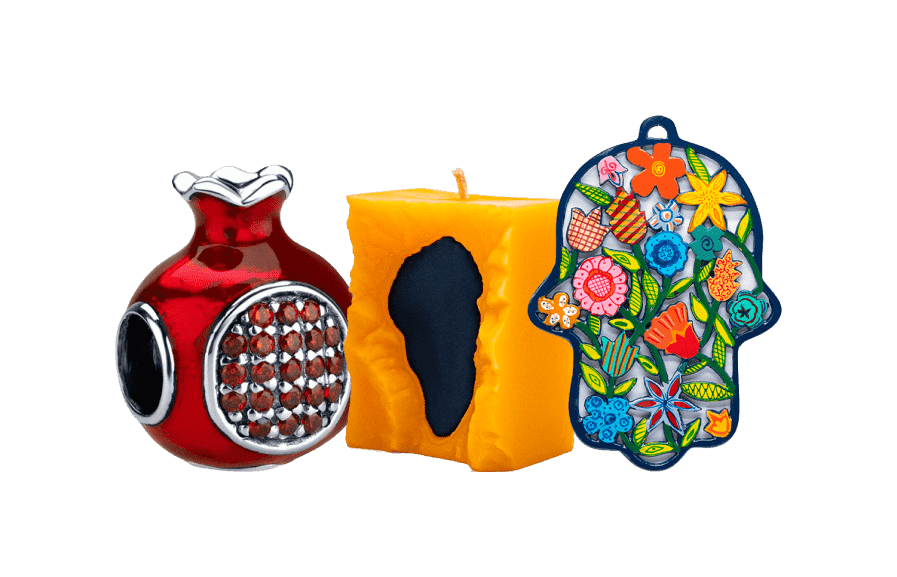In the heart of the Bible, in the land promised to a wandering people, grows a harvest unlike any other—the Seven Species, or Shiv’at HaMinim. These are not just foods. They are symbols of divine blessing, national identity, and spiritual rootedness in the Land of Israel.
Mentioned in Deuteronomy 8:8, the verse paints a vivid picture:
"A land of wheat and barley, of vines, figs, and pomegranates, a land of olive oil and date honey."
Even today, these species shape the cuisine, art, and rituals of Jewish life. Let’s walk through each one—one flavor, one symbol at a time.

🌾 Wheat – Bread of Life
Wheat is one of the world’s oldest cultivated grains—and in Israel, it grows across rolling hills and valleys, just as it did in biblical times.
It is the grain of sustenance and structure—used in the Temple offerings, baked into matzah at Passover, and braided into challah for Shabbat. It represents abundance, but also the human role in refining the raw gifts of nature.
Wheat reminds us: we harvest with our hands, but we nourish with our hearts.

🌾 Barley – Humble and Holy
Barley matures earlier than wheat and was traditionally seen as the grain of the poor, used in humble meals and animal feed. Yet in the Bible, barley becomes a symbol of modesty and redemption.
It was during barley season that Ruth gleaned in the fields of Boaz—a story of kindness, loyalty, and destiny. Barley is also the first grain offered during the Omer count between Passover and Shavuot, tying it to spiritual preparation and humility.
Barley teaches us: there is strength in simplicity, and greatness often begins small.

🍇 Grapes – Joy, Fruitfulness, and Covenant
Grapes are deeply woven into the spiritual fabric of Israel. They represent joy and blessing—from the wine of sanctification on Shabbat to the abundance of the Land in prophetic visions.
The grapevine is a metaphor for Israel itself in Scripture—tended by God, bearing fruit through faith and perseverance. Today, Israeli vineyards continue this legacy, from the Judean Hills to the Golan, producing wines that tell a story in every sip.
Grapes whisper: joy multiplies when it is shared.

🍈 Figs – Tenderness, Trust, and Healing
Figs are one of the first fruits mentioned in the Bible. Adam and Eve famously covered themselves with fig leaves in Eden, and the fruit appears again and again as a symbol of peace, sweetness, and intimacy with the land.
Their soft, delicate nature and slow ripening process symbolize trust in time, patience, and inner richness. In Talmudic thought, the fig is likened to Torah wisdom—each bite reveals something deeper.
The fig tells us: good things take time to ripen, and what is hidden may be the sweetest of all.

🍎 Pomegranates – Righteousness, Beauty, and Wholeness
With hundreds of ruby-red seeds tucked inside its thick skin, the pomegranate has become a cultural and spiritual icon. According to tradition, it has 613 seeds, corresponding to the 613 commandments in the Torah.
It’s often used as a symbol of righteousness and appears in Jewish art, High Holiday meals, and ancient temple garments. Pomegranates also feature in Lev Haolam’s ceramics and jewelry—celebrating both tradition and artistry.
The pomegranate tells us: we are many, but we are one. Beauty and meaning lie within.

🫒 Olives – Endurance, Light, and Peace
Olive trees can live for hundreds of years, even thriving in dry, rocky soil. They symbolize resilience, wisdom, and anointing—as oil was used to crown kings and kindle the menorah.
To this day, the olive remains a cornerstone of Israeli agriculture, and olive oil flows through Lev Haolam boxes from family-owned presses in Judea and Samaria.
The olive tree whispers: true strength is rooted deep and grows slow—but lasts forever.

🌿 Many of these symbols come to life inside our monthly boxes—from rich olive oil and date syrup to handmade pomegranate ceramics.
Curious to see how the Seven Species are woven into our collections? Learn more here — and explore how you can bring the beauty of biblical Israel into your home.
🍯 Date Honey – Sweetness from the Desert
Unlike bee honey, the “honey” in Deuteronomy refers to date syrup, or silan. Made by simmering ripe dates, this thick, molasses-like sweetener represents natural goodness and life drawn from harsh places.
Date palms grow especially well in the Jordan Valley and Negev Desert, where Lev Haolam often sources small-batch silan and dried fruits. Silan is delicious over pancakes, cheese, and even as a glaze for roasted vegetables.
The date palm teaches: even in the driest season, sweetness can still flow.

Living Symbols, Ancient Roots
The Seven Species are still very much alive—cultivated, celebrated, and woven into everyday life in Israel. You’ll find them on holiday tables, in artisan workshops, and yes—even inside the thoughtfully curated boxes we send from Lev Haolam families to yours.
From a ceramic pomegranate tray to a jar of golden silan, each item carries a piece of the Land’s blessing—crafted by the hands of those who live its legacy daily.

Experience the Taste and Meaning of Israel
Whether you’re lighting candles on Shabbat, preparing holiday meals, or simply seeking to reconnect with something deeper, the Seven Species offer a way to touch the soul of the Land—with every bite, every scent, every story.
Want to explore how these ancient gifts come alive today? Visit our page to discover how Lev Haolam shares the heart of Israel—through the real products, people, and places behind every box.








